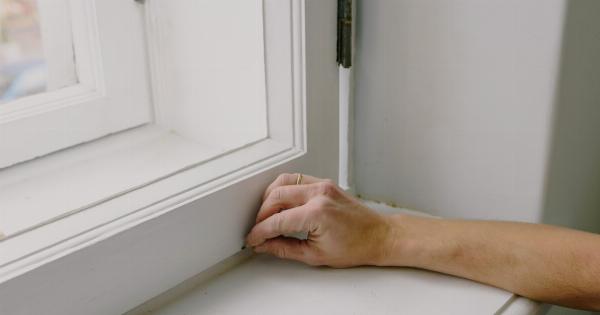Snoring is a common problem and can be a nuisance for both the snorer and their partner. It can disrupt sleep, cause daytime fatigue, and lead to health issues. Luckily, there are many ways to stop snoring that are easy to implement.
Here are 30 ways to stop snoring:.
1. Change Your Sleeping Position
Sleeping on your back increases the likelihood of snoring because it causes your tongue and soft palate to collapse to the back of your throat. Try sleeping on your side instead.
2. Elevate Your Head
Raising the head of your bed by a few inches can help prevent snoring. This can be achieved by using a foam wedge under the mattress or propping up the head of the bed with pillows.
3. Lose Weight
Extra weight around the neck and throat can put pressure on airways and lead to snoring. Losing weight can help reduce or eliminate snoring.
4. Avoid Alcohol
Alcohol relaxes the muscles in the throat, which can lead to snoring. Avoiding alcohol before bedtime can help prevent snoring.
5. Quit Smoking
Smoking can irritate the throat and cause inflammation, making snoring more likely. Quitting smoking can help reduce or eliminate snoring.
6. Stay Hydrated
Dehydration can make mucus in the nasal passages sticky and harder to get rid of, which can lead to snoring. Drinking plenty of fluids can help prevent snoring.
7. Practice Good Sleep Hygiene
Establishing a regular sleep routine, avoiding caffeine and heavy meals before bedtime, and creating a comfortable sleep environment can all help prevent snoring.
8. Use a Humidifier
Dry air can irritate the nasal passages and throat, leading to snoring. Using a humidifier can help keep the air moist and prevent snoring.
9. Try Nasal Strips
Nasal strips can help open up the nasal passages and improve airflow, reducing snoring.
10. Use a Neti Pot
A neti pot can be used to rinse out the sinuses and nasal passages, helping to alleviate congestion and prevent snoring.
11. Avoid Sedatives
Sedatives, such as sleeping pills, can relax the muscles in the throat and lead to snoring. Avoiding sedatives can help prevent snoring.
12. Treat Allergies
Allergies can cause congestion and irritation in the nasal passages, leading to snoring. Treating allergies can help prevent snoring.
13. Practice Breathing Exercises
Practicing breathing exercises, such as deep breathing and yoga, can help strengthen the muscles in the throat and prevent snoring.
14. Try Tongue Exercises
Tongue exercises, such as sticking your tongue out as far as you can and holding it for several seconds, can help strengthen the muscles in the throat and prevent snoring.
15. Try Throat Exercises
Throat exercises, such as singing or doing throat exercises with a speech therapist, can help strengthen the muscles in the throat and prevent snoring.
16. Treat Acid Reflux
Acid reflux can irritate the throat and cause inflammation, making snoring more likely. Treating acid reflux can help prevent snoring.
17. Try Essential Oils
Essential oils, such as peppermint or eucalyptus, can be inhaled or applied topically to help reduce congestion and prevent snoring.
18. Use an Oral Appliance
An oral appliance, such as a mandibular advancement device, can be worn at night to keep the airway open and prevent snoring.
19. Use a CPAP Machine
A CPAP machine is a medical device that uses air pressure to keep the airway open and prevent snoring. It is often used to treat sleep apnea.
20. Try Acupuncture
Acupuncture can be used to help reduce congestion and inflammation, which can help prevent snoring.
21. Try Chiropractic Treatment
Chiropractic treatment can be used to help realign the spine and improve breathing, which can help prevent snoring.
22. Use a Mouthwash
Mouthwash can help reduce bacteria in the mouth and throat, which can help prevent snoring.
23. Treat TMJ
TMJ, or temporomandibular joint disorder, can cause tension in the muscles of the jaw and throat, leading to snoring. Treating TMJ can help prevent snoring.
24. Try Hypnosis
Hypnosis can be used to help reduce stress and tension, which can contribute to snoring.
25. Use a Body Pillow
A body pillow can be used to help keep the head and neck in a comfortable position and prevent snoring.
26. Try a Snoring Mouthpiece
A snoring mouthpiece can be inserted into the mouth at night to help keep the airway open and prevent snoring.
27. Avoid Eating Before Bedtime
Eating before bedtime can cause indigestion and reflux, which can contribute to snoring. Avoiding eating before bedtime can help prevent snoring.
28. Practice Good Oral Hygiene
Brushing, flossing, and using mouthwash regularly can help reduce bacteria in the mouth and throat, which can help prevent snoring.
29. Treat Sleep Apnea
Sleep apnea is a medical condition that can cause snoring and other health issues. Treating sleep apnea can help prevent snoring.
30. See a Doctor
If snoring persists despite trying these methods, it is important to see a doctor. Snoring can be a symptom of a more serious underlying health issue that requires medical attention.





























